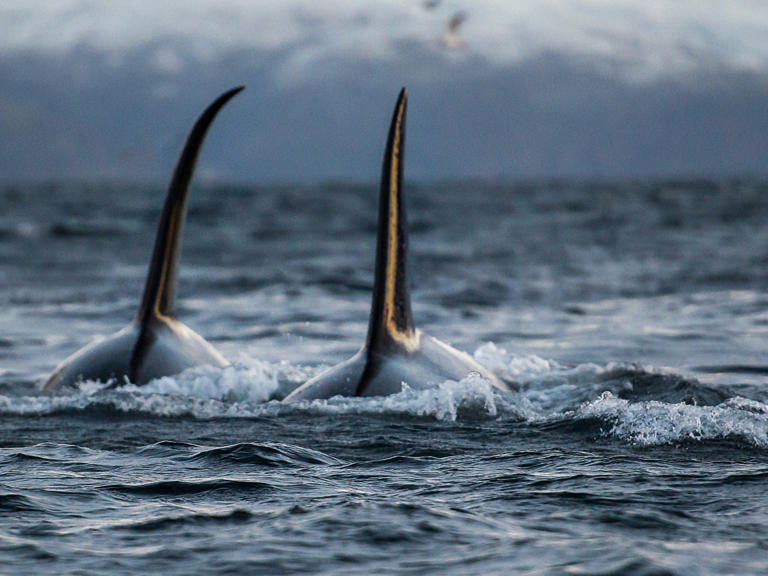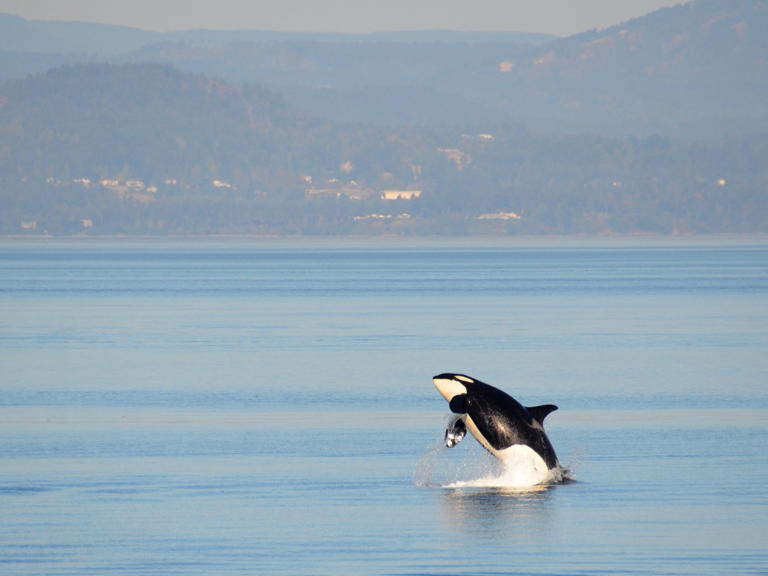HINT; WARMING OCEANS
Orcas sink a sailboat and ram another on the same morning. Scientists look for answers, reports sayjzitser@businessinsider.com (Joshua Zitser) -

© Getty ImagesStock photo of a pod of orcas swimming near a boat.
A group of orcas attacked a small sailboat off Portugal's coast, causing it to sink, per reports.
Shortly after, orcas rammed into another small vessel nearby.
Shortly after, orcas rammed into another small vessel nearby.
Scientists are investigating why so many killer whale attacks are happening in the area.
A pod of orcas attacked a sailboat off the coast of Portugal on July 31 and, just hours later, targeted another vessel in the same area, according to reports.
The first incident, which local media described as "very much worse than usual," saw orcas ram a small sailboat carrying five people approximately seven miles off the coast of Sines, Portugal.
Orca attacks have sometimes immobilized sailboats, but local media said that, in this instance, it caused so much damage that the vessel started to sink.
The five crew members, who were on vacation, per The Sun, made it onto life rafts and radioed for help. A nearby fishing vessel was able to rescue them, according to a statement by the Portuguese Navy.
Unusually, another orca attack took place nearby just a few hours later.
Newsweek reported that the second orca attack involved a small sailboat with two passengers aboard.
The passengers, who were sleeping at the time of the attack, were traveling from Lisbon to the Algarve, per the local media outlet Portugal Resident.
The orcas, which can grow up to 26 feet long, struck the boat and bit the rudder, immobilizing it, the Portugal Resident said. It was towed to the dry dock.
According to the Portugal Resident, more than 200 attacks by orcas against vessels have been recorded along Portugal and Spain's Iberian Peninsula since 2020.

Orca (Southern Resident Killer Whales) in the Pacific Northwest.
Monika Wieland Shields/Shutterstock
Scientists are looking into the growing number of orca attacks, the media outlet said, to determine if the killer whales are acting out of curiosity, mischief, or revenge.
Insider previously reported in 2020 about a series of aggressive actions by orcas along the Spanish and Portuguese coasts. At the time, experts told The Observer that the killer whales might have been mounting deliberate attacks, perhaps indicating high levels of stress.
Scientists are looking into the growing number of orca attacks, the media outlet said, to determine if the killer whales are acting out of curiosity, mischief, or revenge.
Insider previously reported in 2020 about a series of aggressive actions by orcas along the Spanish and Portuguese coasts. At the time, experts told The Observer that the killer whales might have been mounting deliberate attacks, perhaps indicating high levels of stress.
No comments:
Post a Comment